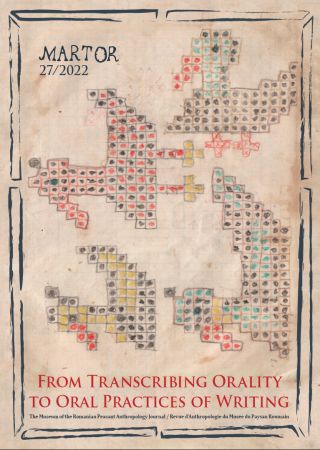Letters in Verse from the Great War
Letters in Verse from the Great War
Author(s): Mirela FlorianSubject(s): Poetry, Oral history, Cultural Anthropology / Ethnology, Between Berlin Congress and WW I
Published by: Muzeul Ţăranului Român, Editura Martor
Keywords: Testimonies; verses; letters; soldiers; war; writing; orality; literacy; peasants; spelling; talent;
Summary/Abstract: This article sets out to study the records and testimonies created during the First World War in order to understand this important historical moment in the existence of Romanian rural communities. Many of the testimonies of Romanian soldiers capture the shift from oral culture and oral language to writing and written culture. Writing, which the soldiers had yet to fully internalize, was one of the few possibilities available to them on the war front to maintain alive the connection with their families and to leave a trace about the exceptional times they were living. These written accounts, which do not always observe the rules of correct writing, make apparent and available to us today a deep layer of oral culture that had until then been orally transmitted from generation to generation.Romanian soldiers from Transylvania were best known for writing home messages in verse, which they composed on the spot, using memorized set structures and phrases from the shared folklore repertoire circulating at the time in the village world. Privates coming from the Kingdom of Romania also made verses in their letters or journal entries, but it was less common. They would sometimes insert in their notes orally transmitted moral stories or parables, as well as other forms and pieces of the peasant oral culture to which they belonged. Some of these testimonies can present real challenges in terms of understanding the writing but also the semantics of some of the words. While familiarized with letters, writing, and reading, their authors had only a rudimentary knowledge of spelling and punctuation rules. To be able to discern the meanings of these writings today, one needs to first understand the complex circumstances that produced them.
Journal: Martor. Revue d’Anthropologie du Musée du Paysan Roumain
- Issue Year: 2022
- Issue No: 27
- Page Range: 47-66
- Page Count: 20
- Language: English

